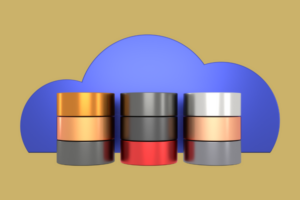By having all your important information in one place, you will make it easier to keep track of everything and be able to access it faster. You will also be able to make better decisions since you will have a more complete picture of your overall situation. And finally, by centralizing all your data, you can reduce the risk of losing valuable information in the event of computer failures or other disasters.
Who doesn’t like to simplify things? Who wants to spend hours sorting through different documents, trying to find what they need? No one. That is why it makes sense for people to move toward consolidating their data in one place. This way, you can get the information you need in record time and make better decisions because all your important information will be in one place.
What Is Data Unification and Why Should You Care?
Data unification is the process of bringing all your data together in one place. By doing so, you make it easier to keep track of everything and access the information you need faster and easier. In addition, by consolidating your data, you will be able to perform cross-platform analytics that could help you uncover hidden information that would have been difficult to obtain. Finally, by centralizing all your data, as mentioned above, you reduce the risk of losing valuable information in the event of computer failures or other disasters. So why should you care about unifying cloud data? Because it will help you make life easier for everyone in your business and make better decisions.
What kind of information should you include in your data unification project?
Almost everything. In fact, the only information you shouldn’t include in your data unification project is data that is already unified in one way or another. This means that all your sales data, the costs incurred by each sales representative, the costs incurred by each product, customer satisfaction surveys, and just about every other type of information needs to come together to create a single source.
The cloud is the perfect place to consolidate your information because it is easily accessible to anyone who needs it. Once everything is centralized in the cloud, you can reduce the risk of losing important information in the event of a disaster. You will also spend less time organizing your data because it won’t be scattered across different platforms.
Accessing your data in the cloud will also give you the ability to gather information in one place that would otherwise reside in separate documents or spreadsheets. You can also create relationships between different types of information and use formulas, PivotTables, and charts to perform more advanced analysis than with simple numbers on a spreadsheet.
You can also take advantage of predefined tools specifically designed for specific tasks such as sales forecasting or data communication. These tools often extract data from multiple sources into a single system where it is automatically organized for further analysis without any effort from your IT department. Employees who regularly work with this consolidated data will also save time, as they won’t have to spend hours organizing their information before they can analyze it themselves.
What are the benefits of having your data located in a secure location?
Centralized data not only make it easier for every employee to get what they need when they need it, but also reduce the risk of losing valuable information. If you’re not an IT expert, chances are implementing your own security measures on your cloud account might seem daunting, but it is not that difficult. Your data will remain safe and secure at all times while being available anywhere, anytime. If you were to try to set up your own system to keep track of all your records and sources, I guarantee that it would take months before everything was under control and organized properly. In addition, there would always be the risk of something going wrong, resulting in the loss of hours or even days of work. That is why a data integration tool is a necessity for any business.
How Can Unifying Your Data Help You Make Better Decisions?
If you want to make sound decisions for your business, it is important to have all the relevant information at your fingertips. This is where data unification comes in. By having all your data in one place, you will make it easier to keep track of everything and access the information you need faster. In addition, by having a complete picture of your overall situation, you will be able to make better decisions for your business. So how can unifying your data help you make better decisions? Let us take a closer look.
First, unifying your data will give you access to more relevant information. This can take the form of sales and marketing reports that you would otherwise spend hours compiling, or customer reviews that you would normally miss because they were on a different platform than your other data.
Your business decisions will also benefit from key information such as customer profiles, demographics, or geographic information that you can use to fill in the gaps between records. The more detailed your data, the more targeted your marketing efforts will be based on real-time data rather than estimates.
How Can Cross-platform Analytics Benefit Your Business?
Cross-platform analytics is a process of analyzing data collected from different sources. This type of analysis is beneficial because it allows companies to see how the different parts of their operations work together. In addition, by identifying discrepancies between data collected from different sources, companies can solve problems and improve overall performance.
Without cross-platform analytics, you slow down your teams’ efforts because they lack the information to understand the changes they need to make. There are many ways in which cross-platform analytics can benefit your business. First, it can help you identify discrepancies between data collected from different sources. This is important because it allows you to troubleshoot issues and improve your overall performance. Plus, by understanding how the different parts of your operations work together, you can make better decisions for your business.
Cross-platform analytics is one of the most effective ways to measure your progress.
Why start right away?
The process of collecting and analyzing data can be a timely task, but it becomes even more difficult if you don’t focus on the end goal. The fact is, without cross-platform analytics, your business (and revenue teams in particular) will never take off. Getting into cross-platform analytics means improving the data collection and analysis process. This allows you to understand how different parts of your business work together to increase performance and make better decisions for your business. To get started with cross-platform analytics, you just need a tool that integrates all the platforms your organization already uses into one platform so you can finally get an accurate picture of what is going on and create synergy between your departments.
Conclusion
Unifying data can be an important process in any business, as it unifies all the data that your business may have dispersed across different platforms. This type of analysis is beneficial because it allows companies to see how different parts of their operations work together and identify gaps between data collected from different sources. Plus, by understanding how the different parts of your operations work together, you can make better decisions for your business. Cross-platform analytics is a great way to measure progress if you want to better understand what is going on with the different departments or teams in your organization, and without cross-platform analytics, businesses will probably never take off.


